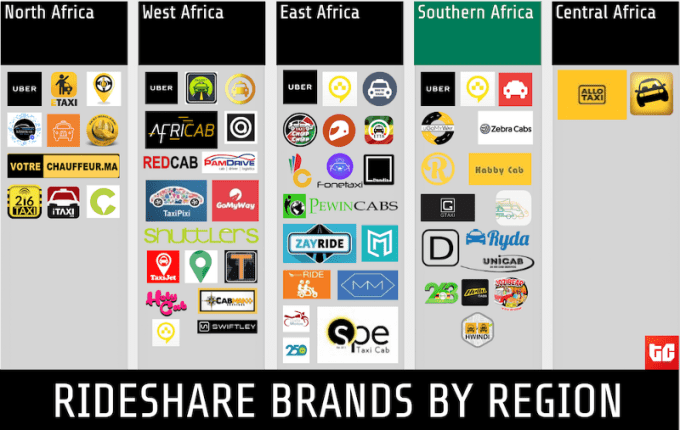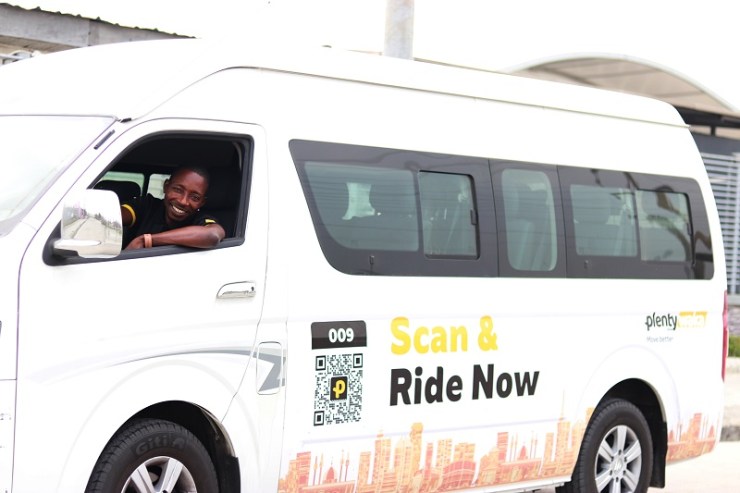Nigerian Bus-hailing Startup Plentywaka Joins Innoson Vehicle To Explore Nigeria’s South East
Nigerian bus-hailing startup Plentywaka is joining local car-making company, Innoson Vehicle Manufacturing— which had earlier last month announced that it was piloting a digital car-hailing service in the south eastern city of Enugu — to explore Nigeria’s other cities, apart from commercial hub Lagos and capital city Abuja. The partnership will see both exploring Nigeria’s south east and the adjoining state of Delta.

“It’s finally here guys!!We weren’t mincing words when we said “Something Big” was coming. Plentywaka partners with Innoson vehicle manufacturing(IVM) Nigeria’s first indigenous automobile manufacturer, to launch in the south east, starting with Delta state,” the company announced on its Twitter Page.
Why This Matters And How It Would Configure Nigeria’s Tech Startup Landscape
Before now, Lagos is synonymous with Nigeria whenever Nigeria’s tech startup ecosystem and the investments that come to it are mentioned. One of the reasons for this is the population density of the city, which is home to more than 20 million people. The city also holds about 15.2% of the country’s entire internet population (14,192,283 subscribers).
However, recent events, such as ban on bike-hailing startups who, backed by the state government, have invested heavily in the city; and introduction of new taxes for ride-hailing companies operating in the state, are building pent-up emotions among current industry players and may likely change the dynamics a few years from now. A glimpse into this future is already playing out with disgruntled startups locating away from the city.
Lagos’ neighboring state Ogun, with more than 5 million (6.3%) active internet subscribers as at Q3 2017 is the second state with the highest rate of internet penetration in Nigeria, and a strong contender after Lagos. This is followed by Oyo, FCT, Kano, Kaduna, Rivers, Edo, Delta, and Niger states, all 10 states accounting for more than 54.9% of the internet subscriber base in the country.
In the entire south east where IVM and Plentywaka would be piloting their joint ride-hailing service — made of Abia, Anambra, Ebonyi, Enugu and Imo states — there are close to 15 million active internet subscribers, as at Q3 2019.
The figures are even more interesting when a combination of adjoining states, where the highest economic activities occur, is made. For instance, the south eastern state of Anambra which forms an urban conurbation with Delta, alone, has more than 5 million active internet users. The state of Delta, on its own, has more than 4 million internet subscribers. Therefore, this presents a big opportunity for tech startups, such as IVM and Plentwaka, looking to scale their models. Most interesting also is when another neighbouring state such as Abia, with over 3 million internet subscribers, is added to the combination.
One major factor that may most likely function to retain a good number of tech startups in Lagos is the fact that, apart from an internet user base of more than 17 million people, at a GDP per capita of more than $7000, Lagos houses most of Nigeria’s easily disposable incomes. This factor becomes more compelling when the state is compared with other regions, such as the south-east, for example, where IVM wants to launch the pilot phase of its ride-hailing service. Collectively, the region has an average GDP per capita of around $1300. This may not be entirely a disincentive to scaling, given that there are other countries with lower economic indexes but relatively buoyant startup ecosystems. For instance, Uganda’s capital city Kampala has an estimated GDP per capita of around $2000, and still houses some of the continent’s leading tech startups, like the recently acquired Beyonic; Safeboda etc.
Therefore, scaling to Nigeria’s other states is highly practicable, provided that the uncertainty of government policies, infrastructural deficit, security and scattered population density of those states (resulting in increase in cost-per-customer acquisition and which could translate to a hard time attaining profitability), are well taken care of.
Even these factors are not absent from current challenges plaguing the Lagos startup ecosystem. Apart from disruptive policy alterations, the state is still groaning under the heavy weight of traffic jams. A survey report by Planet Projects showed that, at least, 3 out of every 10 years spent in Lagos is lost to traffic — meaning that residents of Lagos, Nigeria’s economic capital, spend an average of 7 hours 20 minutes in traffic every day.
This is not getting any better any time soon as more and more vehicles — there are currently more than 5 million cars in Lagos, out of over 11 million vehicles in Nigeria — continue to line bumper-to-bumper across roads in the city.
One thing the latest partnership would definitely achieve is to test the waters, and normalise tech trends outside Lagos and Abuja. This could most possibly trigger innovations and investments in tech startups beyond both cities, and correspondingly configure the tech startup landscape in Nigeria.

Innoson Vehicle and Plentywaka have added themselves on Africa’s digital ride-hailing map. Innoson Vehicle ‘s IVM Connect will be available from October, 2020. Source: TechCabal.
Plentywaka Innoson South East Plentywaka Innoson South East Plentywaka Innoson South East
A Look At What Plentwaka Does
Co-founded in September 2019, by the quartet of Afolabi Oluseyi, Enagwolor Johnny, John Shaibu, and Onyeka Akumah, Plentywaka available on Google Playstore and IOS App store, requires just a two-step process to schedule a journey and book a seat for convenient movement around a city. Following its success in the Nigerian largest commercial city of Lagos, the startup has since launched its Abuja routes, which were available for a one-week free commute for prospective users. The routes include Nyanya — Berger; Berger — Nyanya; Kubwa — Area 1; Area 1 — Kubwa; Lugbe — Area 1; Area 1 — Lugbe.
Figures released by Nigeria’s National Bureau of Statistics in 2018 revealed that there are 11,653,871 million vehicles in Nigeria. 6,768,756, representing about 58.08 per cent are commercial vehicles while 4,739,939 (40.67 per cent) are private vehicles. Nigeria’s population has recently been projected by the United Nations to have reached a staggering 200 million. The implication of this is that 6.7 million commercial vehicles cannot serve a population of 200 million or more. Out of the 6.7 million commercial cars in Nigeria, only about 200,000 commercial vehicles are on the roads in Lagos alone, with a population of more than 17 million people.
This is even worsened by the fact that a reported 70% of people in Nigeria’s capital rely on public transport due to the lack of a robust transport system. Plentywaka hopes to help resolve this problem.
The startup is pioneering what SWVL is doing in Egypt, and its adding to the growing number of e-hailing bus-sharing services available to public transport users in Africa. Recently, Uber launched its first global bus service in Egypt, after acquiring local startup Careem in a $3.1 billion deal. SWVL which had mulled plans to expand to Lagos, Nigeria, even ahead of Plentywaka, leads the continent’s e-hailing bus-sharing service, with major presence in Egypt and Kenya, and Pakistan. The Cairo-headquartered startup is backed by some of top regional VCs including BECO Capital, Raed Ventures, Oman Technology Fund, and global names like Endeavor Catalyst and has raised over $100 million in VC money which makes it one of the best-funded startups in Africa and the best-funded startup in this category. Other notable regional players include Kenya-based bus services QuickBus and Little.
Charles Rapulu Udoh

Charles Rapulu Udoh is a Lagos-based lawyer who has advised startups across Africa on issues such as startup funding (Venture Capital, Debt financing, private equity, angel investing etc), taxation, strategies, etc. He also has special focus on the protection of business or brands’ intellectual property rights ( such as trademark, patent or design) across Africa and other foreign jurisdictions.
He is well versed on issues of ESG (sustainability), media and entertainment law, corporate finance and governance.
He is also an award-winning writer

